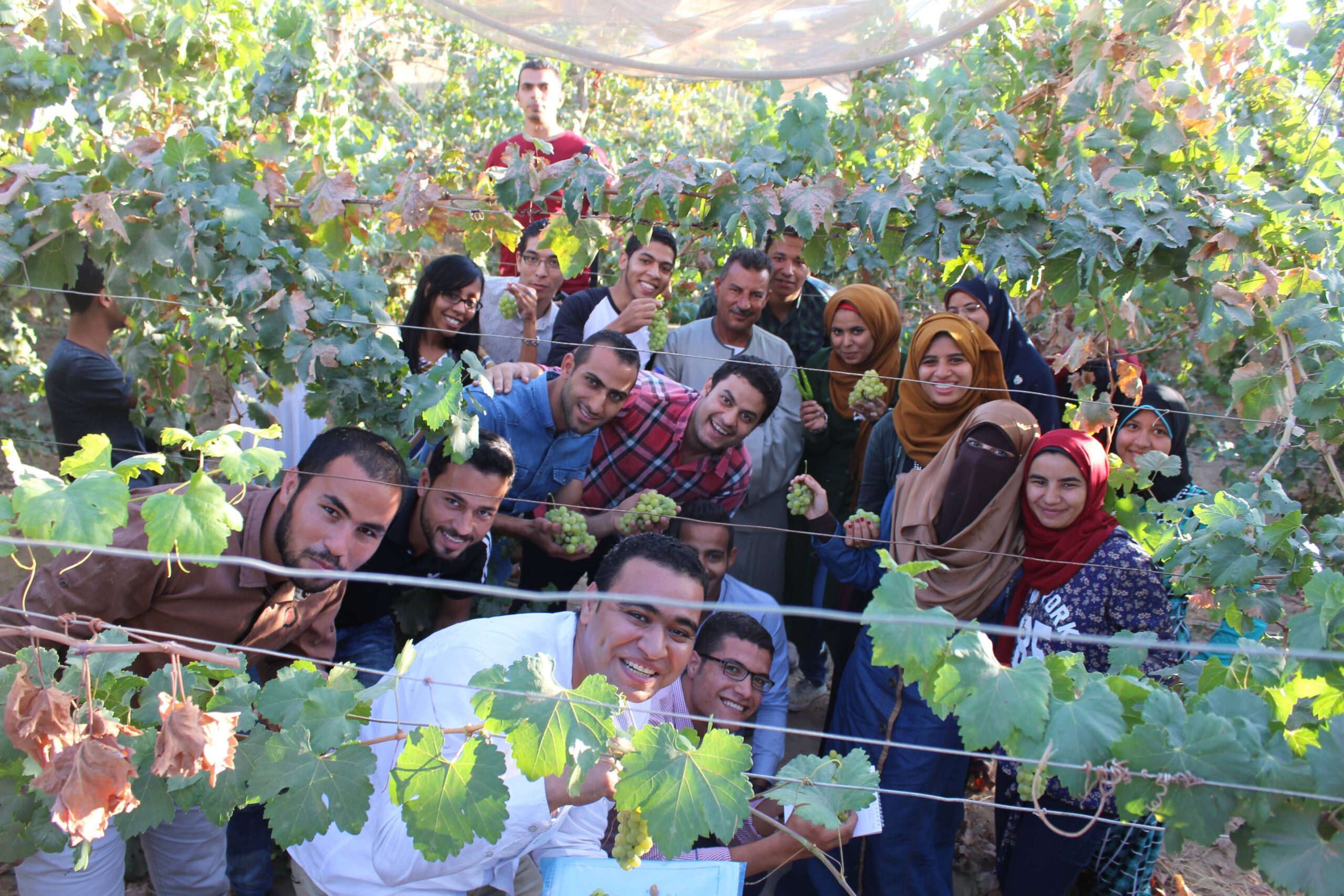Small Scale Family Farming Regional Initiative
Description
The project is part and parcel of the Small Scale Family Farming Regional Initiative (:Egypt, Jordan, Lebanon, Mauritania, Morocco, Sudan, Tunisia):
The overall objective of this Regional Initiative is to reduce rural poverty by promoting and supporting inclusive small-scale agricultural development, with special attention to governance and institutions, including improving access of smallholders to social protection, rural services and markets, strengthening the capacities of producers’ organizations and promoting youth employment and sustainable value chain development.
Agriculture is currently facing many challenges such as decreased productivity and limited market access to sell produce. This is making it difficult for the sector to serve as a primary source of income for Egypt’s increasingly unemployed population.
At the same time, insufficient access to information is among the factors most negatively affecting youth looking for jobs and seeking to launch entrepreneurial ventures.
In response, the Food and Agriculture Organization of the United Nations (FAO) has launched the “Agribusiness Development through Entrepreneurship for Youth Employment” project, in cooperation with several agricultural technical schools in Fayoum, Egypt.
The project aims to build the capacity and social capital of educated youth to create new micro and small enterprises along the value chain, and focuses in particular on providing women with equal opportunities in agribusiness entrepreneurship: 60 percent of its participants are female.
Overall objective:
- Capacity and social capital building of educated youth to create at least 20 new micro and small enterprises along the value chain by December 2017 with a focus on providing women an equal opportunity in agribusiness entrepreneurship.
The target beneficiaries were: Educated youth from the Faculty of Agriculture or Agricultural Technical Schools in Fayoum governorate showing entrepreneurial promise, with 50-50 gender distribution.
The main results were:
- R1: 40 target beneficiaries (50-50 gender split) acquired the skills to start their own business through the project.
- R2: 40 trainees increased their social capital/network by establishing relationships with key regulatory agencies, financial service providers, and the private sector.
- R3: 40 trainees received technical training and capacity building & management knowledge for their businesses
- R4: 40 trainees received technical training in Communication and ICTs for their businesses
- R5: 20 total trainees started their business by December, 2017.
- R6: 50% of business started by December, 2017 are initiated and run by women.
Services
- Select, train and build capacity of target beneficiaries in running an enterprise and sustainable agribusiness practices along the value chain through the “Start Your Business” entrepreneurship approach; namely Agricultural Entrepreneurship Program.
- Develop social capital of trainees through networking and finance opportunities at trainings, workshops and visits to select, successful social enterprises.
- Provide guidance and opportunities for technical training of youth including environmental management training and introduction to innovation technology.
- Assess existing status of access to relevant information, learning material and tutoring as well as peer-to-peer knowledge sharing among the youth.
- Train target beneficiaries in the application of digital technologies (e.g. social media) to promote their agribusinesses
- Provide Business coaching and counseling to trainees to have complete business plans ready to be financed.
- Facilitate access to finance, hold a financial fair and create linkages with financial providers
- Set Institutional Partnerships


